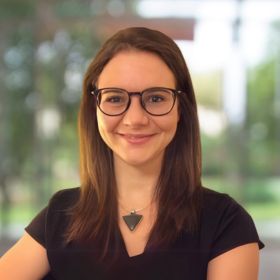This year, on the back of 18 randomised control trials and 90 peer-reviewed papers, the first ever digital therapeutics for anxiety and insomnia were granted clearance by the FDA. This means Americans seeking help can now be prescribed, by their healthcare professional, a clinically effective and non-pharmaceutical treatment for their conditions.
The secret to their success…?
Big Health, the company behind these treatments, has pioneered a new model for ‘venture science’. This is not a company that has ‘spun-out’ the foundational science on cognitive behavioral therapy to create a new commercial proposition. This is a company that has kept one foot in academia and one foot in the commercial world throughout their development. They are simultaneously building an evidence base AND a front-line solution. Academic research and commercial development can be two sides of the same coin and if leveraged correctly they feed one another to generate enormous impact.
This is not a new model, so to speak. The pharmaceutical industry is built on the back of this foundational collaboration between clinical evidence and commercial development. However, the development of digital health products and digital therapeutics, to date, have more often than not missed this piece of the puzzle. Which is why these developments are so groundbreaking for the sector.
The current marketplace for digital health products for those with dementia epitomises why it is so important to push for both commercial and research success in tandem. Where we see commercial success without scientific credibility, we see a crowded marketplace of products that are difficult to distinguish between, might not work and could even cause harm. Where we see scientific success without a viable commercial model, we see exciting solutions written up in an evaluation and impact report go on to gather dust as the funding call comes to a close and the money runs out.
What does this mean for dementia…?
This year we have had some exciting news of our own, with the first disease-modifying treatments being approved by the MRHA (Medicines and Healthcare Products Regulatory Agency). But what about the dementia digital health and health product space? There is some promise – but a lot of gaps to be filled. I reckon it is currently 1-0 to pharma.
Perhaps, if we could nurture a bit more of that venture science magic, we could foster the next generation of dementia innovators to rise to the challenge? These innovators could then build products for people living with dementia that have science baked into their businesses from the outset. These products could, in turn, not only provide non-pharmaceutical alternatives for people but also prepare the healthcare system for these new disease-modifying treatments.
Are you ready for the challenge? Check out our new Launchpad support package, where we can help you turn your knowledge of the dementia space into the healthcare products of the future. Check out our blog post all about this new support package.
The Innovation Team at Alzheimer’s Society runs several support packages to help entrepreneurs create and develop products for people living with dementia. Launchpad, our newest offer, is a free four-month, part-time, support package particularly targeted at academics. Through a series of 1:1 commercial coaching sessions, innovation masterclasses, idea testing workshops and networking events you will be able to turn the earliest ideas into a convincing commercial product to win pilot funding and grow a research venture.
Find out more in our Applicant Handbook, available on our website, or come and chat to us in our Wednesday afternoon office hours.

Dr Ella Moonan-Howard
Author
Ella Moonan-Howard is a Senior Innovator at the Alzheimer’s Society. Ella previous worked at Zinc, supporting early stage start-ups and their founders to build research skills and to test their products as they built them. Obsessed with seeing the direct impact these start-ups could make, she moved to Alzheimer’s Society to ensure the next generation of dementia products go on to achieve scale and change the lives of those living with dementia.

 Print This Post
Print This Post